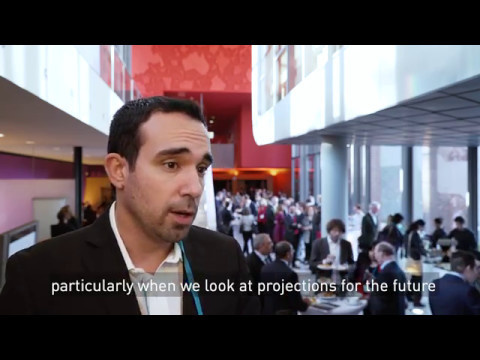Climate affects food prices in the Middle East – Interview with Francesco Femia
Many experts worry that climate change is a risk factor for peace. One key mechanism is that climate change is likely to lead to water scarcity, and may disrupt food production in many regions. The risk of public unrest and civil conflicts intensifies when food prices and availability become more volatile.
Watch more videos on environment, conflict, cooperation, and climate diplomacy on our video platform.
"So the Middle East and North Africa is experiencing a very significant decline in precipitation in the winter - that is when it gets most of its water. I think climate change manifests itself mostly through the water cycle in the Middle East and North Africa. That has a big impact on the production of food and on water resources. When you have water stress that can lead to instability, to migration, and it can also be exploited by terrorist organizations who will use it as leverage over local populations. It is really about climate change, water and instability in the Middle East. But there are also climate effects outside of the Middle East on food for example, on food production that can affect food prices. And the Middle East is heavily dependent on the global food market. Price spikes and price volatility of bread for example in Egypt can play a huge role. It is all interconnected of course. It is one of the regions of the world we have to be very concerned about, particularly when we look at projections for the future which is decreasing precipitation in the entire region."










